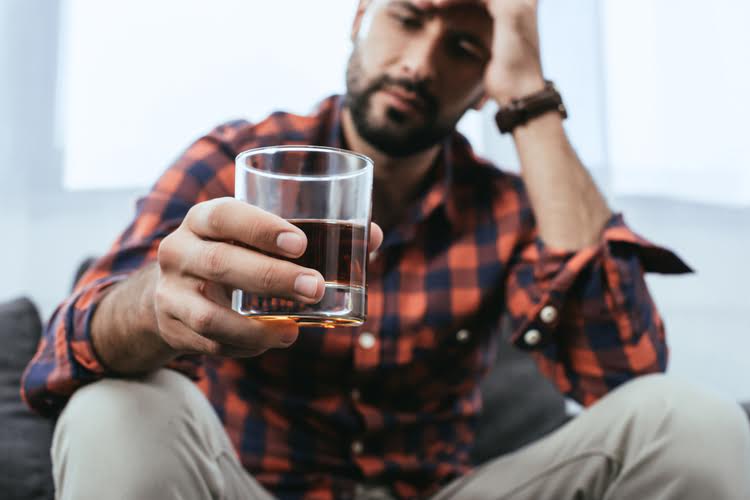We pay our respect to their Elders past and present and extend that respect to all Aboriginal and Torres Strait Islander peoples today. Think of the ocean, the urge is a huge wave, you know it’s big and it’s strong but it will subside if you hang in there. The waves/urges will become smaller and you will become stronger, and in time the waves become even smaller and further apart and far more manageable to deal with.
Healthier Alternatives to Unwind After Work
- No one should assume the information provided on Addiction Resource as authoritative and should always defer to the advice and care provided by a medical doctor.
- Addiction Resource does not favor or support any specific recovery center, nor do we claim to ensure the quality, validity, or effectiveness of any particular treatment center.
- No one’s after-work routine looks the same, and that includes whether they need a glass of wine, a cigarette, or a soft seltzer after a long day at work.
- At the same time, the general ADA duty to accommodate applies in cases where alcoholism qualifies as a disability.
- In our survey, over one in three respondents use a substance three or more days per week, suggesting a shift from casual use to established routine.
Studies have consistently shown a negative correlation between regular after-work drinking and job performance. The habit can lead to absenteeism, tardiness, reduced work efficiency and strained professional relationships, ultimately affecting overall workplace dynamics. Research indicates that this pattern of behavior not only decreases an individual’s work capacity but also burdens colleagues who may need to compensate for the reduced output. The National Institute on Alcohol Abuse and Alcoholism (NIAAA) warns that persistent alcohol consumption can lead to a cycle of addiction and a myriad of health issues, affecting organs and bodily systems. Peer pressure and societal expectations are pivotal in shaping drinking behaviors.
Alcohol dependence is the result of this because stress does not go away with alcohol, it could pile up. So instead of dealing with what is stressing you out, you use alcohol to give you a short-term relaxation feeling. Drinking after work has also become a common culture for work-related activities.
The Recovery Village cherry Hill at Cooper
A clearly written and consistently enforced policy provides a definitive standard for behavior and consequences. An unwritten or erratically applied policy, however, can create ambiguity if an employer has a history of permitting social drinking despite a formal ban, weakening their position if an incident occurs. Happy hour has also become a substitute for networking and brainstorming, with a third of the American workers surveyed saying that getting drinks after work promotes team bonding. For individuals not yet ready for complete abstinence, Moderation Management programs offer support toward understanding drinking after work and controlling drinking behaviors. These programs focus on setting personal drinking limits and goals within a safe, supportive environment. However, it is important to note that while moderate drinking may work for some, abstinence remains one of the most effective methods for those with alcohol use disorders.
Refer to the Employee Assistance Program (EAP)
- One of our employees stayed after her brunch shift on Sunday and proceeded to have 2 doubles at the bar.
- Neither this site nor anyone who answers the call receives a commission or fee dependent upon which treatment provider a visitor may ultimately choose.
- North Jersey Recovery Center offers several paths to make sure treatment is personalized and effective.
- That’s problematic, because it’s well established that people who don’t drink at all often have health issues—or a history of prior alcohol abuse—that makes them a poor basis for comparison.
- Addiction Resource is not a healthcare provider, nor does it claim to offer sound medical advice to anyone.
However, such gatherings can also lead to less desirable outcomes, including unfiltered speech, unplanned commitments, and unprofessional conduct (TLNT). If that makes you grumble, consider that anxiety and other hangover symptoms aren’t the worst side effects of evenings spent getting drunk with colleagues. She told me she often receives questions from people who feel compelled to drink at work and don’t want to. One letter writer even worried about being too uptight after a higher-up cracked a beer during a job interview. If an employee is caught drinking at work, ensure safety, discuss the issue privately, and refer them to the EAP program.

As substances evolve and workplace norms shift, employers and health professionals should consider a wider view of after-hours wellness. These habits aren’t fringe — they’re part of how many people transition out of the workday. When happy hour begins directly after work, dinner time might come and go while you’re still enjoying time at the bar. If you start drinking on an empty stomach, you may experience the effects of your cocktails more rapidly.

Is a nightly beer or two after a long day at work bad?
The law doesn’t require them to do this, but some will offer you a last-chance agreement to get help. She and her coauthors also found that beer and wine seemed to be better for a young person’s health than hard liquor, although they say more research is needed to tease out these nuances. In either instance, patients will receive services, such as medical oversight and individual and group therapy.
It’s important to understand the issues that can come with drinking after work and when it’s time to stop. Many drug addictions and alcohol use disorders develop without a person even noticing. Before addiction, people typically start to become dependent on drinking. What starts as a drink or two after work every day becomes a routine and addiction. An employer’s internal alcohol policy, often found in the employee handbook, is the primary guide for after-hours conduct on company property. Employers can create policies that are more restrictive than what the law requires, including a complete prohibition of alcohol.
The Influence of After-Work Drinking Culture

These calls are offered at no cost to you and with no obligation to enter into treatment. Neither this site nor anyone who answers the call receives a commission or fee dependent upon which treatment provider a visitor may ultimately choose. Calls to any general helpline will be answered by treatment providers, each of which is a paid advertiser. Nearly 1 in 4 respondents (15.8%) spend over $50 per week on calming products or substances.
The Risks of Drinking Outside of Work Hours
Conversely, an employer may chose to discourage any company-sponsored drinking outside of work. Though not altogether a new phenomenon, the incorporation of alcohol in the workplace has become increasingly normalized in some job settings. Some companies openly offer alcohol to employees as a perk and even designate a day of the week for all employees to have a teambuilding or celebratory drink. With such a lax approach to alcohol during work hours, it isn’t surprising that alcohol after work alcoholism has become so commonplace.
Write a comment